- 10 of the Best Company Career Site Job Search Examples (2026 Update) - December 17, 2025
- 10 Attractive Job Posting Examples - December 23, 2024
- Top 18 Employer Reviews & Ratings Sites for 2024 - September 20, 2024
Employees are one of your biggest assets in recruiting. That’s why the best career sites feature an employee testimonials/branding section.
Did you know:
“Candidates trust the company’s employees 3x more than the company to provide credible information on what it’s like to work there.” – Career Arc
Employee reviews are social proof that helps persuade others who trust your employees more than you.
What type of employee testimonials work best?
Data from the latest Talent Board North American Candidate Experience Research Report shows the content types candidates prefer.
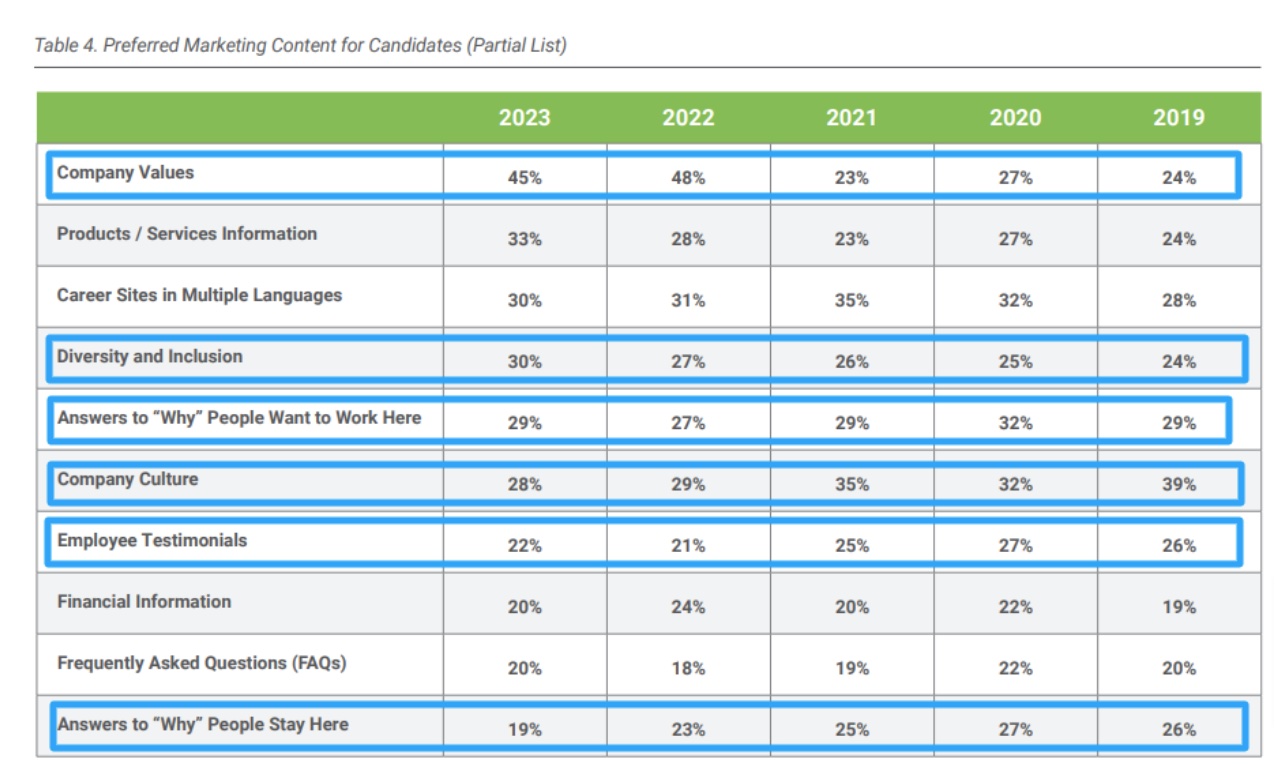
I’ve highlighted the ones that can help you improve your employee testimonials. We’ll go over them below.
Company values
Potential hires want to know what your company stands for. Employee testimonials that highlight your core values can be very powerful.
Employees showing how these values are part of their daily work life can show job seekers that your company isn’t just talking the talk but walking the walk.
Diversity and inclusion
Diversity and inclusion are important to many job seekers. According to a survey from Glassdoor, 76% of respondents say that a diverse workforce is an important factor when evaluating companies and job offers.
Testimonials that showcase your commitment to a diverse and inclusive workplace can attract a broader range of talent. Employees talking about how they feel respected and valued, regardless of their background, can reassure potential hires that your company is a place where everyone can thrive.
Answers to “why” people want to work there
Why do people choose to work at your company? This question is on the minds of many job seekers.
Testimonials that answer this can be incredibly persuasive. When employees share their reasons—whether it’s the exciting projects, growth opportunities, or the positive impact they can make—it helps paint a clear picture of why your company is a great place to work.
Company culture
35% of job seekers say that they will pass on a job offer if the company culture is a bad fit. That’s how big of a deal your company culture is to job seekers.
Testimonials that highlight what it’s like to be part of your team, how employees interact, and what the day-to-day atmosphere is like can be very appealing.
Employees sharing their experiences with team collaboration, work-life balance, and office traditions can give a real sense of what it’s like to work at your company.
Employee testimonials
Straightforward employee testimonials are still highly effective.
These testimonials allow employees to speak about their experiences in their own words. Whether it’s about career development, the support they receive from management, or simply why they enjoy their job, these personal stories can be compelling.
Answers to “why” people stay here
Understanding why employees choose to stay at a company can be just as important as why they joined.
Testimonials that focus on employee retention can highlight the benefits of long-term employment with your company. Whether it’s job satisfaction, career growth, or a sense of belonging, hearing why current employees stay can help convince others to join.
7 Examples of Employee Testimonials
Here are 7 examples of awesome employee testimonial pages I found on company career sites:
Coty testimonial page
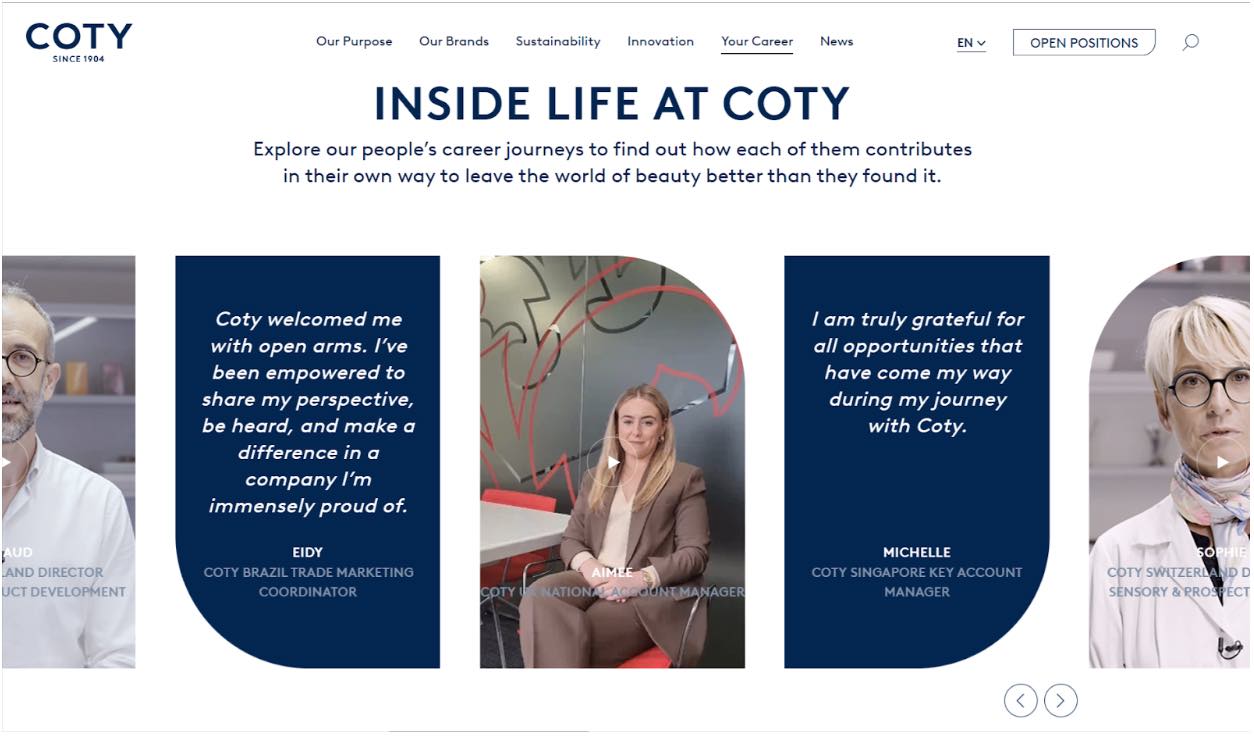
On Coty’s career page, the company’s employees share insights on camera for new and prospective employees considering a job at the organization.
Each team member shared their thoughts on why they think highly of Coty. This helped create a picture of what job seekers should expect if they join the team.
Nike employee testimonial page
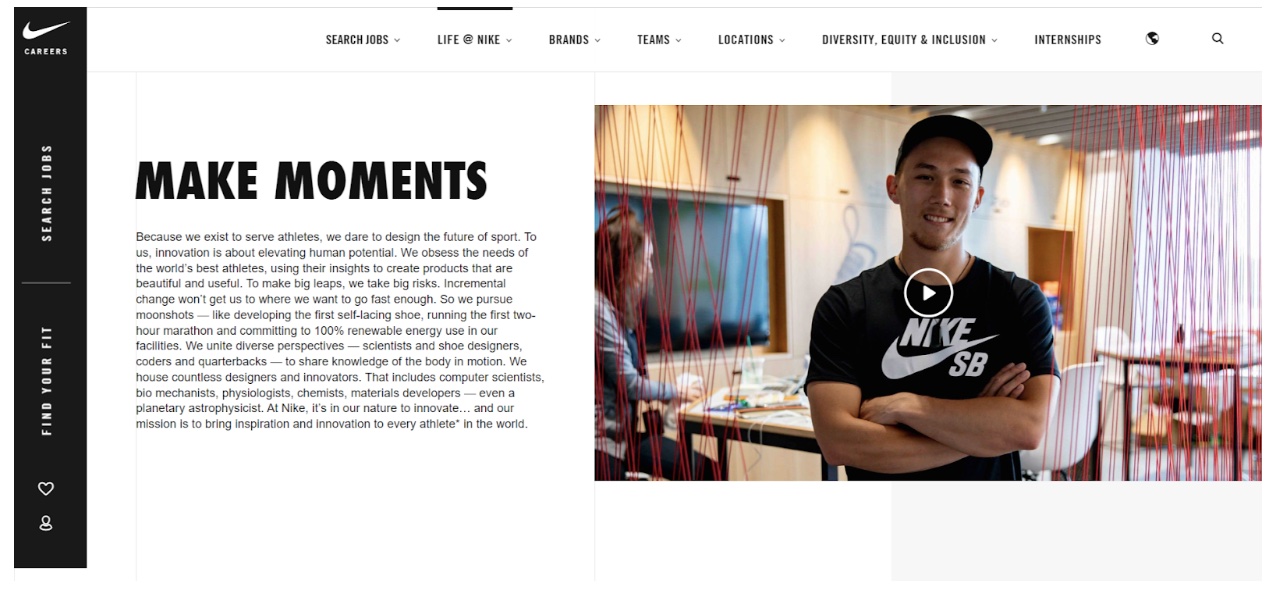
One thing that stands out on Nike’s testimonial page, other than the high product quality that you’d expect from the company, is the level of detail that went into showing how the employees personal experiences made them a match for Nike.
A selection of employees shared how they joined the company and why it felt just right to be at Nike
Starbucks employee testimonial page

Other companies chose to use either video content or written content. But Starbucks said, “Hold my beer, sorry coffee”, and used both content formats on their testimonial page.
A selected group of employees shared on camera what it’s like to work at Starbucks. They focused on the culture and values of Starbucks, making it easy for job seekers with shared values to envision a future with the company.
They also had other employees share what they loved about working at Starbucks. Their quotes were then displayed on the website as carousels.
John Deere employee testimonial page
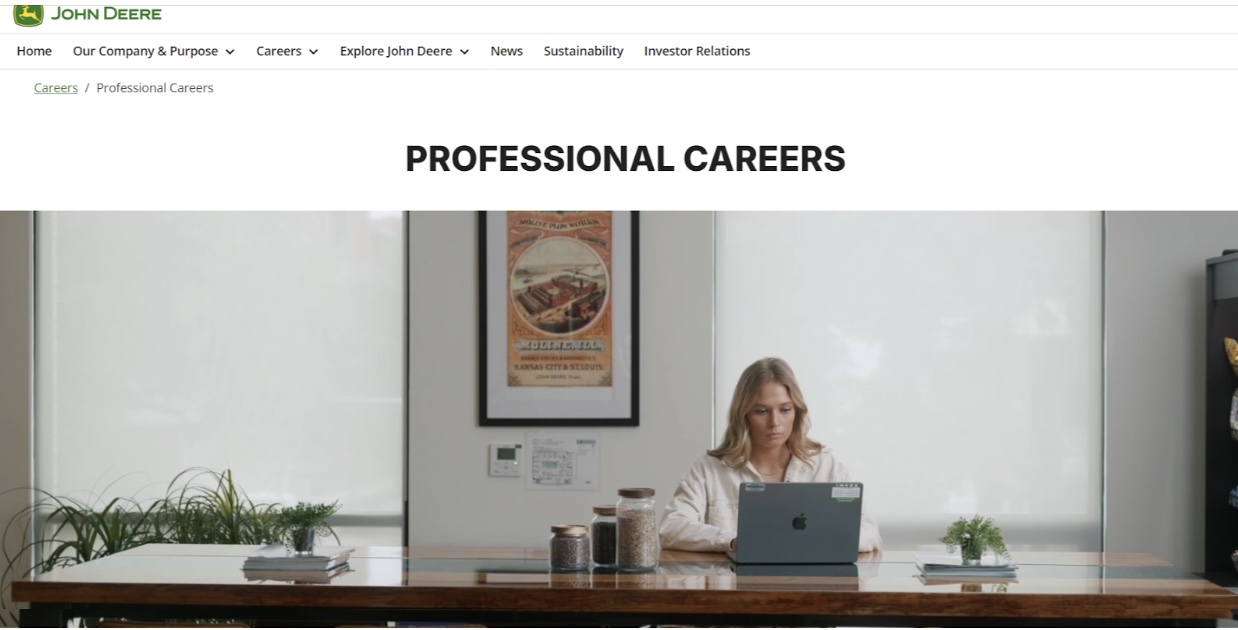
Like Starbucks, John Deere also chose to use video and written content testimonials for their landing page.
This format works great because it allows people who are just scanning the page to quickly see what the company is about without having to stop to watch a video.
Capgemini employee testimonials
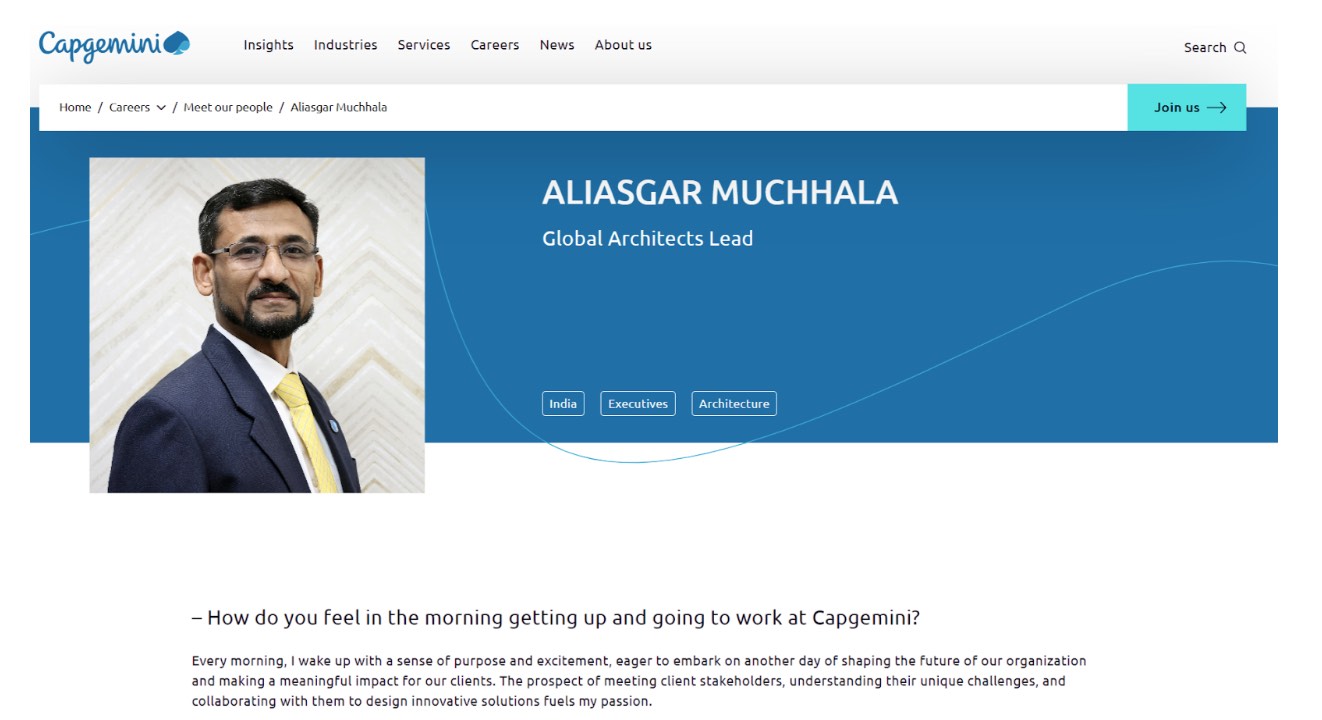
While other companies were satisfied with showcasing 5 or 6 testimonials, Capgemini provides an abundance.
The testimonials are published as short videos, with short text to give an overview.
Procter & Gamble
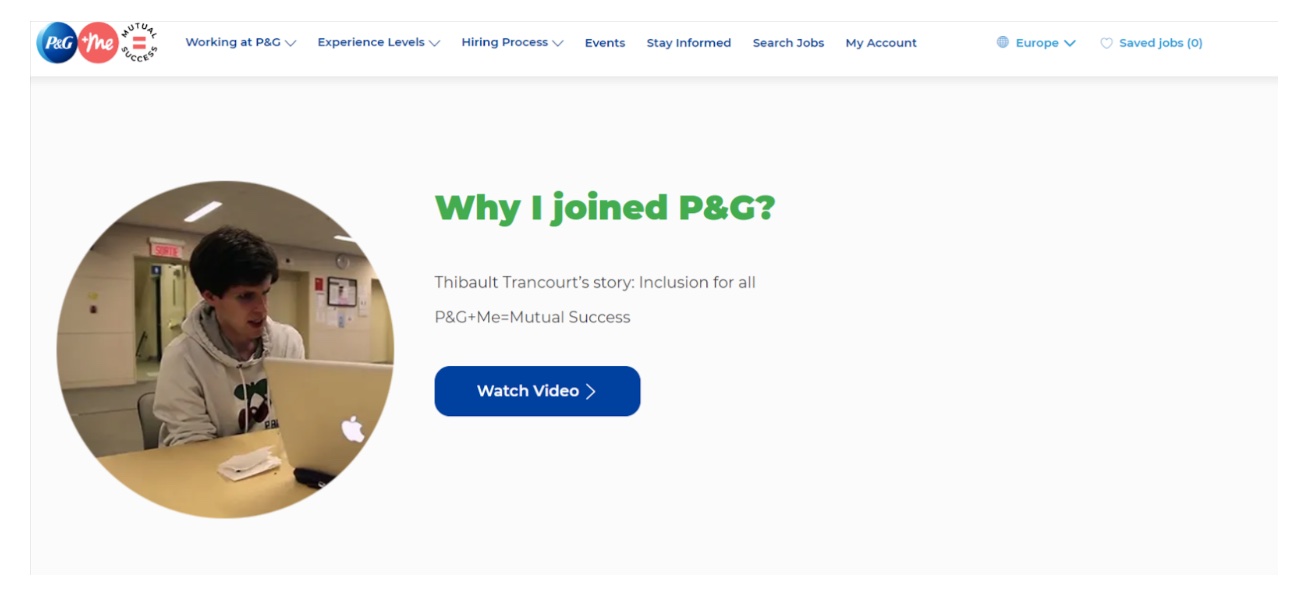
Procter & Gamble has a testimonial series called “P&G + Me” where employees talk about the different opportunities available at P&G, and how the organization has created an inclusive and high-performance environment.
The cleaning authority
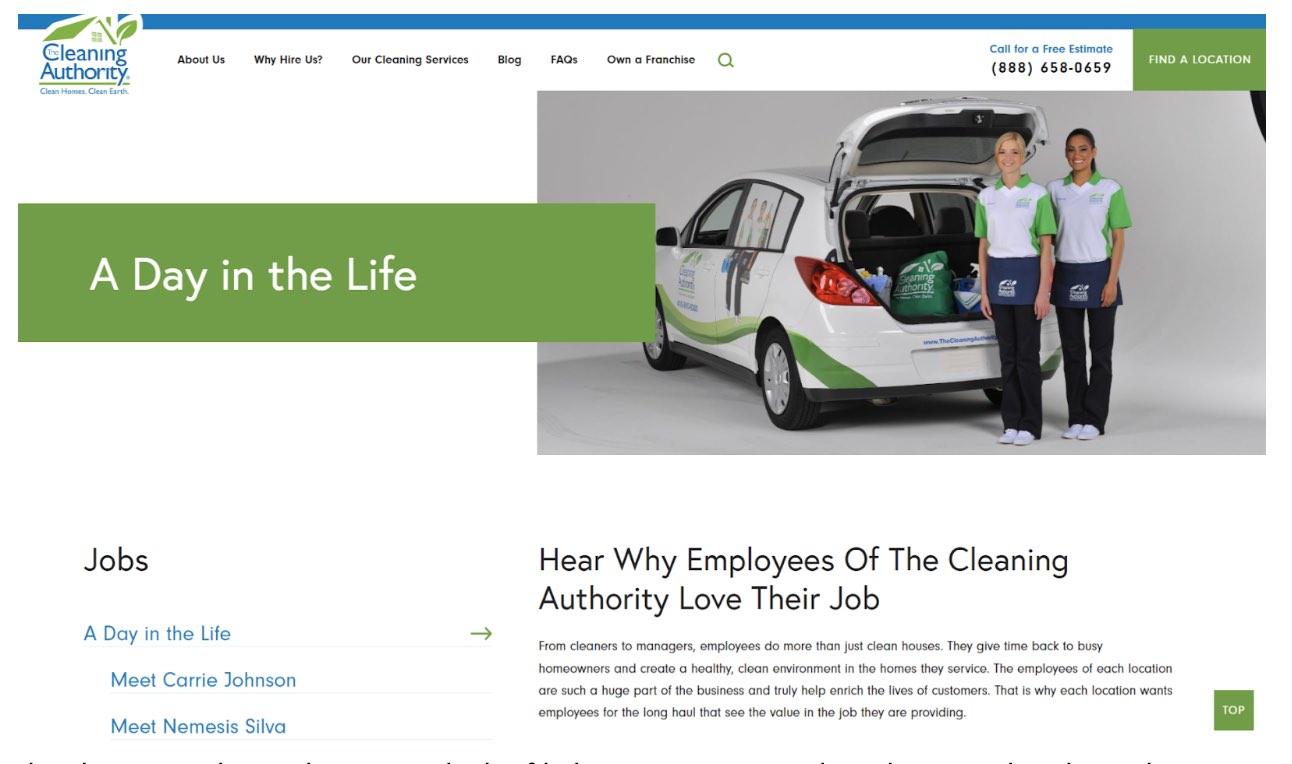
The cleaning authority does a good job of helping prospective job seekers visualize themselves working for the company by using testimonials that focus on what each employee’s journey has been like since they started at the company.
Read also: 5 ways to use testimonials to sell your job ads
How to collect employee testimonials
Gathering employee testimonials doesn’t have to be complicated. Here’s how you can do it effectively:
Surveying employees
One of the easiest ways to collect testimonials is through surveys. These are some tips for you:
- Create simple questions. Use straightforward questions that employees can answer quickly in your survey. For instance, ask questions like, “What do you enjoy most about working here?” or “How has the company supported your growth?”
- Keep it anonymous (if necessary). The truth is, sometimes if you want honest feedback, consider allowing employees to respond to your survey anonymously. Yes, this might increase the chances of them being brutally honest in a manner that can’t be used as testimonials. But for the same reason, it can make them more comfortable to share their true thoughts in a way that puts your company in a good light.
- Distribute the survey widely. Send the survey to all employees, or target specific teams if you want testimonials from certain departments. Use tools like Google Forms or SurveyMonkey to make the process simple.
One-on-One Interviews
Surveys are great. But if you want more in-depth testimonials, conduct one-on-one interviews. Use the following tips to carry this out.
- Choose the right employees. Select employees who have been with the company for a while or who have unique experiences to share.
- Prepare open-ended questions. Ask questions that allow employees to share detailed stories, such as “Can you describe a project that made you feel proud?” or “What makes you excited to come to work each day?”
- Make the interview session comfortable. Choose a relaxed setting, like a quiet conference room or even a virtual meeting if you’re working remotely. The more comfortable the employee feels, the more genuine their responses will be.
- With their permission, record the conversation so you can capture their words accurately. You can use these recordings for written testimonials or even turn them into video content.
Utilizing exit interviews
If an employee is leaving on good terms, you shouldn’t forget to do an exit interviews to get testimonials.
- During the exit interview, ask the employee to share what they enjoyed most about working at the company. Questions like “What will you miss the most?” or “What were the highlights of your time here?” can yield valuable insights.
- If the employee is leaving due to negative reasons, be respectful and avoid pressing for a testimonial. Focus on those who have had a positive experience.
- Always ask for permission to use their responses as a testimonial, even if they’re leaving. Some might be happy to leave on a positive note and share their good experiences.
Best practices for creating employee testimonials
If you want to get started with creating employee testimonials for your company’s career page, here are some best practices you should follow.
Encouraging participation
Getting employees to share their stories can be tricky, but it is an important step if you want to create genuine testimonials. Use the following tips:
- Make it voluntary. Let employees choose to participate. Don’t pressure anyone into telling their story.
- Highlights the benefits of participation. Explain to the employees how their testimonials can help attract coworkers and improve the company culture.
- Create a comfortable environment. Ensure employees feel at ease. Offer a relaxed setting for interviews or recording sessions.
Crafting effective questions
The right questions can lead to the best testimonials. Here’s how to ask questions that make your testimonials engaging.
- Keep it simple. Use straightforward questions. Avoid jargon or complicated words.
- Focus on experience. Ask about specific projects, challenges, and achievements.
- Seek personal insights. Encourage employees to share what they love about their job and the company.
Here are some employee testimonial questions you could ask your employees for engaging testimonials:
- What do you enjoy most about working here?
- Can you share a memorable project you’ve worked on?
- How has the company helped you grow professionally?
Editing and approval process
Testimonials must look authentic, otherwise, there’s no point in creating them. Inauthentic testimonials will sound flat to talents looking into your company’s culture and can stop them from sending in applications.
Follow these steps to avoid this from happening:
- Respect the original message. Make sure any edits do not alter the employee’s message.
- Ensure clarity. But make sure to keep the natural tone of the speaker. You don’t want your testimonial to feel like the employee was following a script.
- Get approval. Always let employees review and approve the final version of their testimonial before it is published.
Why I wrote this:
The types of content on your career site impact how candidates perceive your company, workplace and values. Ongig gives employers the ability to add employee testimonials and many other types of recruiting content with our Career Site Builder.
